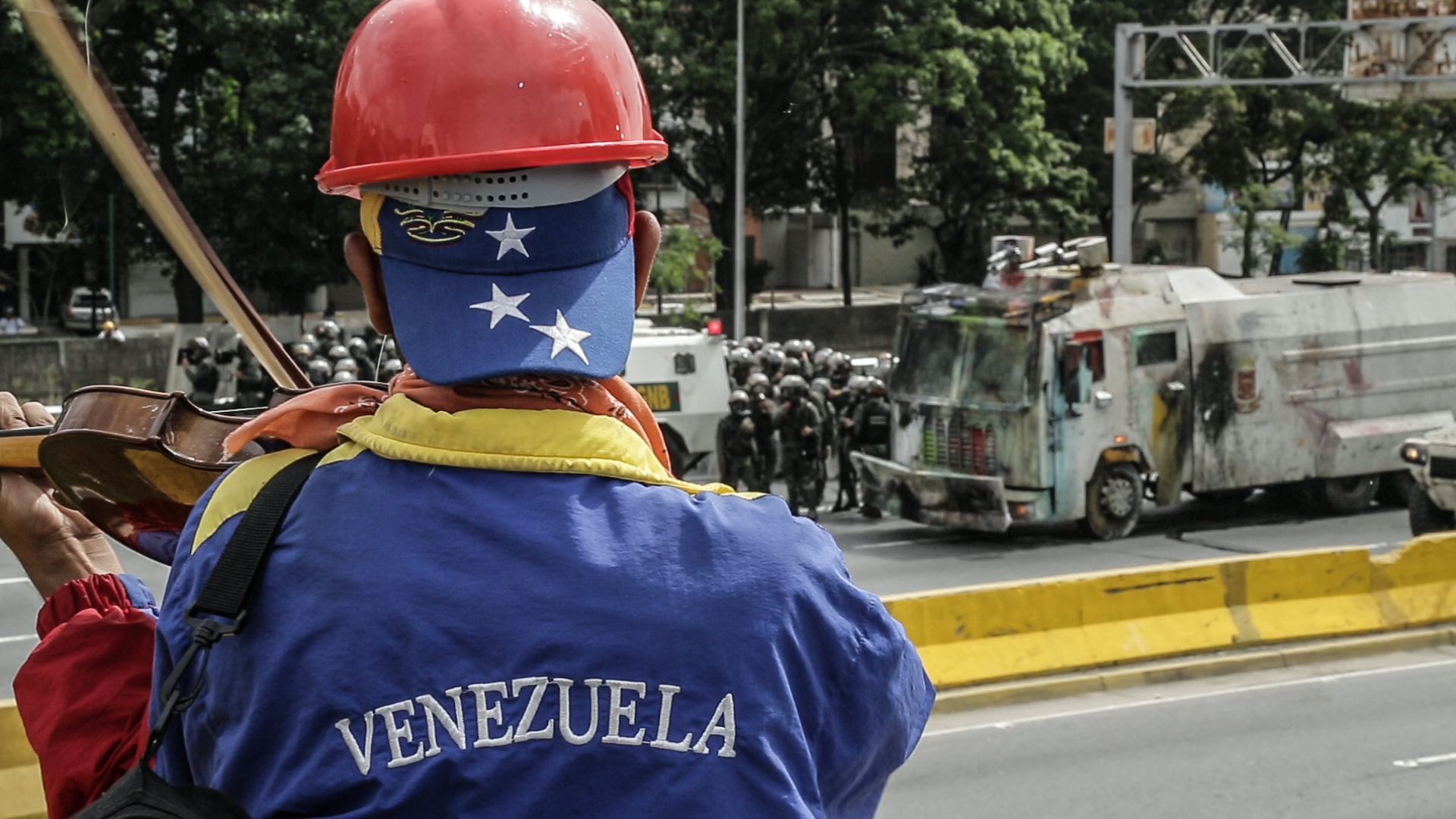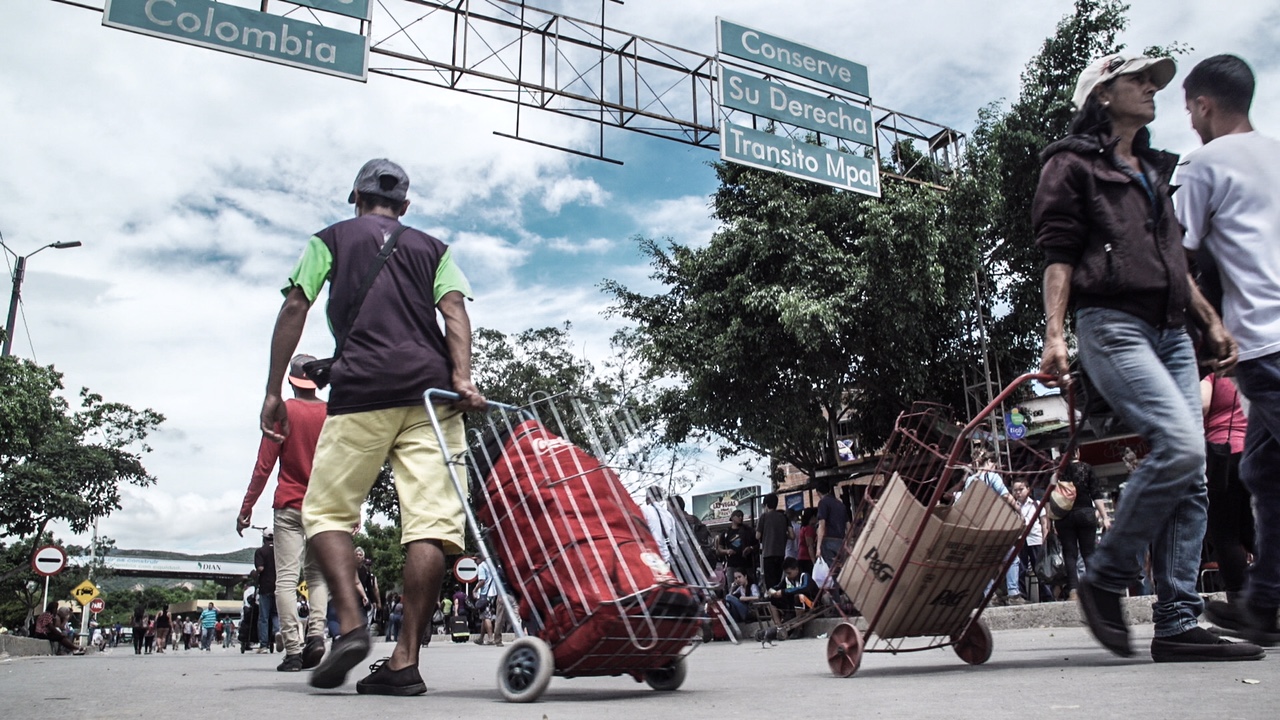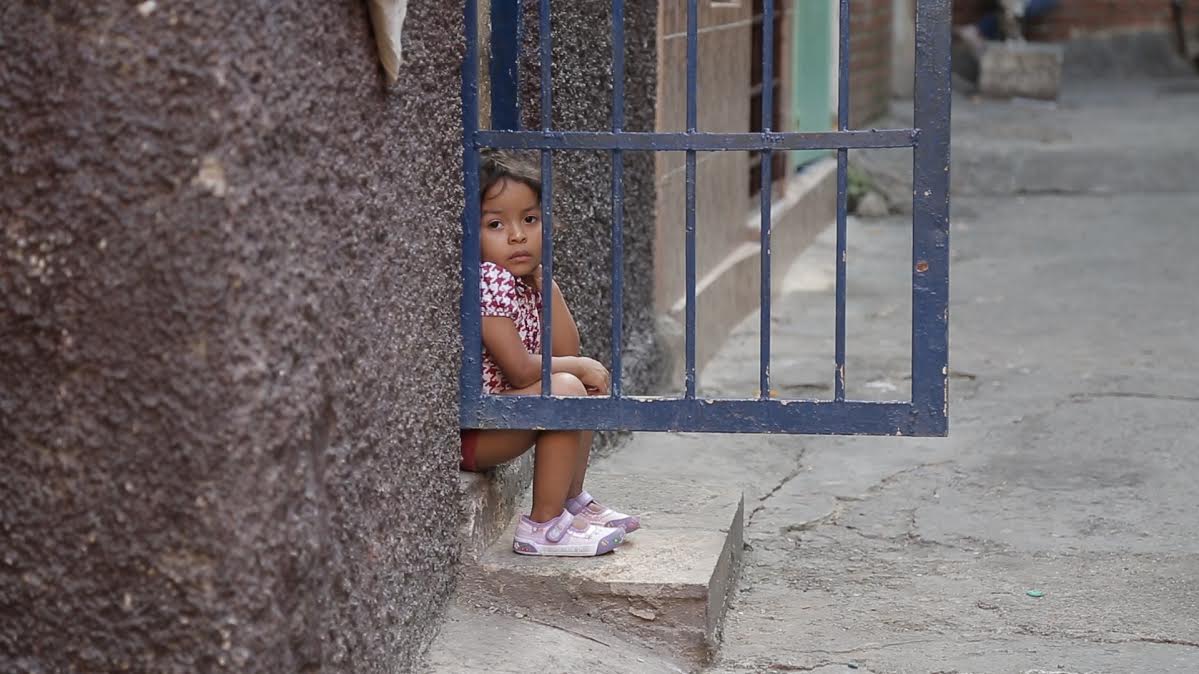
As oil-rich Venezuela continues to spiral in social and economic collapse, citizens have had enough, taking to the streets almost daily since early April, calling for change. Among their demands: the resignation of embattled President Nicolas Maduro, and general elections. The wave of uprisings has been met with violence: over 60 protestors have been killed, a thousand injured, and over 2,600 arrested. As the clamor from the opposition coalition and citizens protesting the government gets louder, and the government increasingly meets calls for change with repression, Venezuela is stuck in political deadlock.
As Special Correspondents for the PBS NewsHour, Nadja Drost and Bruno Federico travel to Venezuela to explore what is behind the political crisis, and the humanitarian crisis that is unfolding alongside it.
Venezuelans are suffering from shortages of everything from basic food goods to medicine, and with inflation in the triple-digits, many can't afford to buy the basics.
As hunger becomes more widespread, it is young children who are suffering the most. With infant mortality and severe malnutrition amongst children rising at alarming rates, Venezuela is facing a humanitarian crisis amongst its youngest and most vulnerable.
Meanwhile, tens of thousands of Venezuelans have been crossing the border to neighboring Colombia.
Some are seeking medical attention they can't find in Venezuela's collapsed health system; others walk to the border carrying suitcases, looking to start a new life in Colombia. With hundreds arriving every day, authorities in the Colombian border city of Cúcuta worry about how the local health care system and economy can absorb what they expect to be an increase in Venezuelans seeking asylum and jobs.
-
×
 English
English






